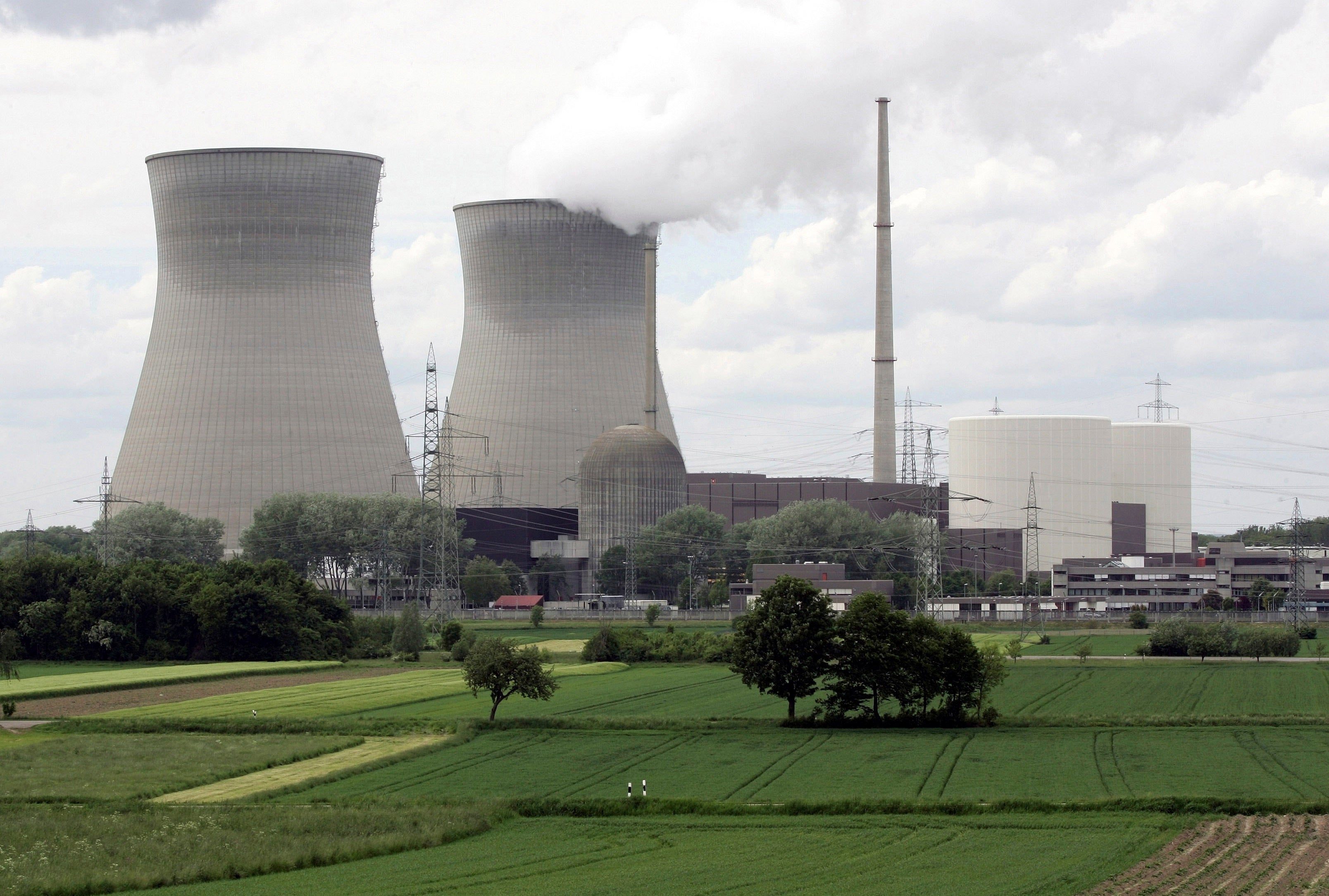Germany shuts down half of its remaining nuclear plants
Germany is shutting down half of the six nuclear plants it still has in operation

Your support helps us to tell the story
From reproductive rights to climate change to Big Tech, The Independent is on the ground when the story is developing. Whether it's investigating the financials of Elon Musk's pro-Trump PAC or producing our latest documentary, 'The A Word', which shines a light on the American women fighting for reproductive rights, we know how important it is to parse out the facts from the messaging.
At such a critical moment in US history, we need reporters on the ground. Your donation allows us to keep sending journalists to speak to both sides of the story.
The Independent is trusted by Americans across the entire political spectrum. And unlike many other quality news outlets, we choose not to lock Americans out of our reporting and analysis with paywalls. We believe quality journalism should be available to everyone, paid for by those who can afford it.
Your support makes all the difference.Germany on Friday is shutting down half of the six nuclear plants it still has in operation, a year before the country draws the final curtain on its decades-long use of atomic power.
The decision to phase out nuclear power and shift from fossil fuels to renewable energy was first taken by the center-left government of Gerhard Schroeder in 2002.
His successor, Angela Merkel reversed her decision to extend the lifetime of Germany’s nuclear plants in the wake of the 2011 Fukushima disaster in Japan and set 2022 as the final deadline for shutting them down.
The three reactors now being shuttered were first powered up in the mid-1980s. Together they provided electricity to millions of German households for almost four decades.
One of the plants — Brokdorf, located about 40 kilometers (25 miles) northwest of Hamburg on the Elbe River — became a particular focus of anti-nuclear protests that were fueled by the 1986 Chernobyl catastrophe in the Soviet Union.
The other two plants are Grohnde, about 40 kilometers south of Hannover, and Grundremmingen, 80 kilometers west of Munich.
Some in Germany have called for the decision to end the use of nuclear power to be reconsidered again because the power plants already in operation produce relatively little carbon dioxide. Advocates of atomic energy argue that it can help Germany meet its greenhouse gas reduction targets.
But the German government said this week that decommissioning all nuclear plants next year and then phasing out the use of coal by 2030 won’t affect the country’s energy security or its goal of making Europe's biggest economy “climate neutral” by 2045.
“By massively increasing renewable energy and accelerating the expansion of the electricity grid we can show that this is possible in Germany,” Economy and Climate Minister Robert Habeck said.
The remaining three nuclear plants — Emsland, Isar and Neckarwestheim — will be powered down by the end of 2022.